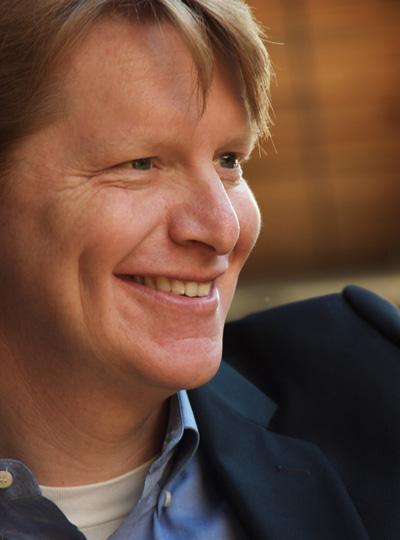Seventh Generation CEO Says Business is the Most Powerful Force Today
John Replogle D’88 calls it his “spear in the chest moment.” As President of Guinness Bass Import Co. in the U.S., and Guinness U.K, he’d been focused on a swift career climb, complete with a personal mission statement summarizing his goals.

So Replogle quit Guinness and joined Unilever, becoming the company’s general manager for its North American skin care division. He helped to launch the “Real Beauty” campaign for Dove and establish the Dove Self-Esteem Fund. He then served as president and chief executive officer of Burt’s Bees, a leading environmentally friendly personal care products company, before finally becoming CEO and president of Seventh Generation, another top green consumer products brand.
Why the deep and sustained focus on consumer products with a mission? “Capitalism is one of the greatest forces for social good that we’ve ever seen, but capitalism’s impacts have dramatic negative consequences,” Replogle told a group of Tuck MBA students on August 28. “We need a new way to measure capitalism’s externalities. That’s a fundamental issue for this generation to think through—rebalancing the scales.”
Replogle, who is also a trustee of Dartmouth College, was on hand to give the keynote address for the Tuck’s Allwin Community Outreach Day. The Center for Business & Society, sponsor of the daylong event, organized the entering class of 2015 into small teams to visit 29 nonprofit organizations in and around the Upper Valley. Students met with the executive directors to learn about specific challenges faced by each organization, and to bring their business knowledge and skills to bear on proposed solutions.
For Replogle, it makes sense to spend a day focusing business students on the social and environmental impacts of business. As he noted, 51 of the 100 largest economies in the world are global corporations, while only 49 are countries. “Business is the most powerful force today,” he told students. “It exists beyond politics, and it has the power to forge new social contracts. But with great power comes great responsibility.”
And that, Replogle told students, is why businesses should reframe traditional bottom-line thinking to include what is known as the “triple bottom line”: people, planet, and profits.
“Millions more people today want to be middle class,” Replogle said. “With huge and growing constraints on food supplies and natural resources, the sobering reality is that the days ahead will not be like the days past. By the time you’re my age—by 2040—the world will be a far different place. We’ll need a new form of leadership to conquer these challenges.”
Seventh Generation offers a fitting example of the type of leadership Replogle advocates. The name of the company is drawn from the Great Law of the Haudenosaunee, the oral constitution of the Iroquois Confederacy. The law states, “in our every deliberation, we must consider the impact of our decisions on the next seven generations.”
According to its website, the company’s goal is to design household and personal care products that “make a difference.” Products must adhere to development standards that prohibit carcinogens, volatile organic compounds, chlorine bleach, and phosphates as ingredients. The development process must address overall product toxicity, eye and skin irritation, biodegradability, and many other human health and environmental concerns.
It’s good business. Seventh Generation is consistently ranked among the top makers of environmentally friendly consumer product brands, alongside brands like Patagonia and Whole Foods.
According to Replogle, the company considers transparency a consumer right. Robert Hansen, senior associate dean and faculty director for the Center for Business & Society, underscored the need for such transparency in his opening remarks on Allwin Day, as students prepared to meet with their assigned nonprofits.
“After the financial crisis, business got a black eye,” Hansen said. “Now it’s under a magnifying glass. You’ll be asked to justify your actions when your company impacts things beyond your shareholders. You’ll need to respond and explain your actions.”
Principled leadership of business and society is an essential value of the Tuck MBA program, and the Center for Business & Society reinforces this throughout the year, bringing other visiting executives, hosting events and conferences, and funding socially and environmentally focused internships and independent studies.